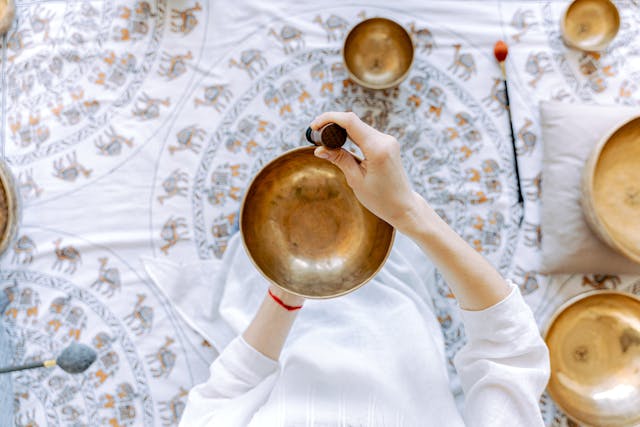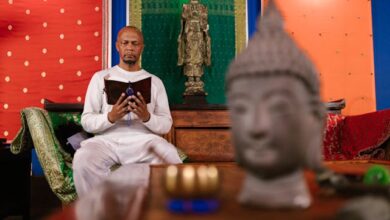Traditional healing and modern therapy for Mental Health: Bridging the gap

Bridging the gap between traditional healing and modern therapy can play a complementary role in mental wellness and sound health through their vast wealth of knowledge, encompassing methods, and conventional practices. Traditional healing comprises years of archaic spiritual and cultural practices mastered and passed through generations, modern psychological health approach relies on years of well-documented research, theories, clinical trials, and ever-evolving medicine. These two different approaches can help each other in achieving a common goal of improving the overall mental health of humans. This article will break down a few of the numerous instances where traditional practices and modern medical methods can be unified for a better approach to mental health.
The Roots of Traditional Healing
Traditional healings are age-old cultural practices that comprise meditation, yoga, herbal medicine, energy healing, and acupuncture. These methods are from different cultures and have been passed down through generations. Traditional healing focuses on reconnecting the mind, body, nature, and spirit as one. Traditional healing is believed to help remove toxins from the body.
Main Elements of Traditional Healing:
- Meditation: The use of physical and mental techniques to clear one’s mind and increase awareness while trying to connect with your surroundings.
- Yoga: A combination of breathing exercises, meditation, and body posture that is believed to improve strength, flexibility, balance, relax muscles, improve blood flow, reduce stress, and manage pain.
- Herbal medicine: The use of roots, leaves, seeds, and other plant-based products to treat general ailments and physical injuries.
- Energy Healing: The method of channelling healing energy from one individual to another and causing positive outcomes.
- Acupuncture: A very old Chinese traditional healing method that involves puncturing specific body parts with needles to ease the muscles, relieve pain, increase blood flow, unblock the chakra, and treat other conditions.
The Science of Modern Therapy
Modern therapy is the use of well-researched data to create methods and products that have been tested and proven to cure specific ailments. It involves the use of a variety of advanced physical, psychological, technological, and medicinal treatments such as psychodynamic therapy, exposure therapy, cognitive behavioral therapy (CBT), and interpersonal therapy.
Key Elements of Modern Therapy:
- Psychodynamic therapy: This is a kind of therapy that involves diving deep into the subconscious of the patient to get information about their childhood and find possible events that have led to their current problems. Example: People who had close drowning experience in water tend to be scared of large bodies of water if proper therapy is not given.
- Exposure therapy: This is a type of behavioral therapy that is used to treat anxiety disorders such as phobias, panic disorder, and post-traumatic disorder (PTSD). Treatment involves gradually exposing patients to activities, things, and situations that they fear. The goal of this therapy is to consciously create a safe environment where the patient can easily face their anxieties and feel relaxed.
- Cognitive behavioral therapy (CBT): This is an oral therapy used by therapists to help people change their thoughts and behaviors. It is believed that there is a connection between our actions, feelings, and thoughts. So one’s behaviors and mood towards certain things can be positively impacted by changing negative thoughts.
- Interpersonal therapy (IPT): This type of therapy implies the use of oral discussions to improve and resolve interpersonal problems. It works on the idea that our mental health can be impacted by our personal relationships.
Bridging the Gap: Integrative Medicine
Integrative medicine is the combined use of modern therapy and traditional healing using well-proven methods to improve physical and mental health. Healing methods from both worlds are utilized to give a desired treatment plan. Using this method, the importance of using traditional methods combined with the professional approach from modern methods is recognized.
Benefits of Integrative Medicine:
- Enhanced Healing: Combining both methods can help give a better result at a faster pace. The drawbacks of traditional methods can be complemented with modern methods and vice versa.
- Holistic Care: Holism believes that one cannot exist on its own without affecting others as they are all interconnected. So while creating a treatment plan, the whole body, spirit, and mind are put into consideration.
- Increased Options: Since two different methods are being used, there will be lots of treatment options available to the patient.
Challenges and Considerations
There are numerous benefits that come with Integrative medicine, however, it has several shortcomings as well. Let’s look at a few challenges with combining traditional medicine and modern therapy as a method of treatment.
- Insufficient evidence-based research and methods: There are lots of these practices that lack in-depth studies to prove their effectiveness and safety, this has limited the available treatment options to just a few.
- Insurance and cost: Most of these methods are not covered by insurance, so they tend to be more expensive than using only the modern approach.
- Poor research funding: Research to discover new methods and perfect known treatment plans is slow due to little funding.
- Professional Training and Knowledge: Standard healthcare workers usually have little or no knowledge about integrative medicine. Lack of knowledge in this field has made it challenging to find professional care.
There should be a direct communication link between modern doctors and traditional healers treating the same patient; this would help with patient safety, better understanding, and avoiding drug interaction.
Conclusion
As we continue to record continuous advancements in modern medicine, the relationship between traditional and standard practices will continue to grow. This will help reduce the cultural stigma of mental health treatment that is present in most cultures and encourage individuals to speak out. Finally, modern medicine can learn a lot from traditional methods and utilize its innovative approach to derive better medicines using generational wisdom from traditional methods.



